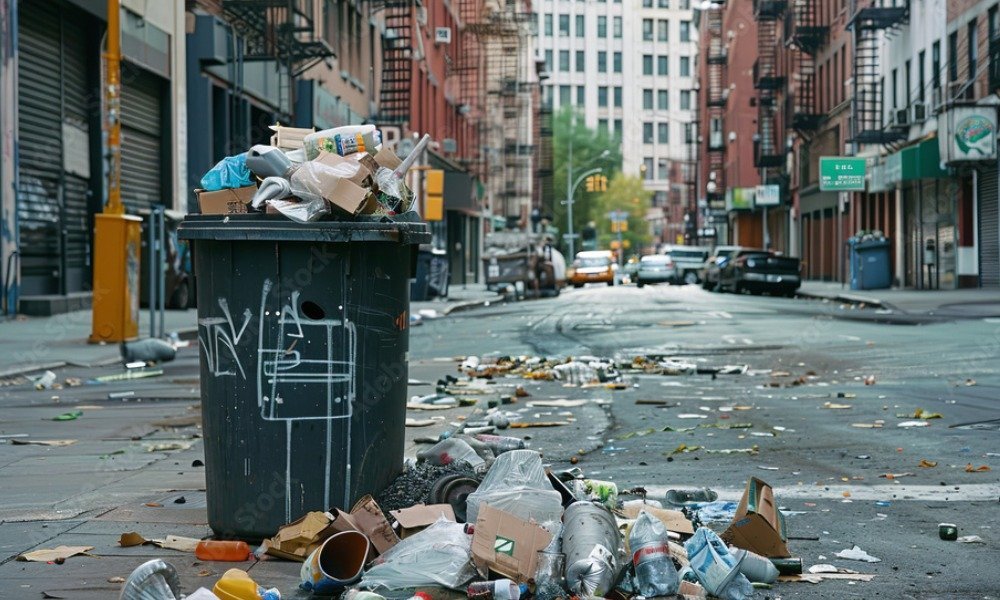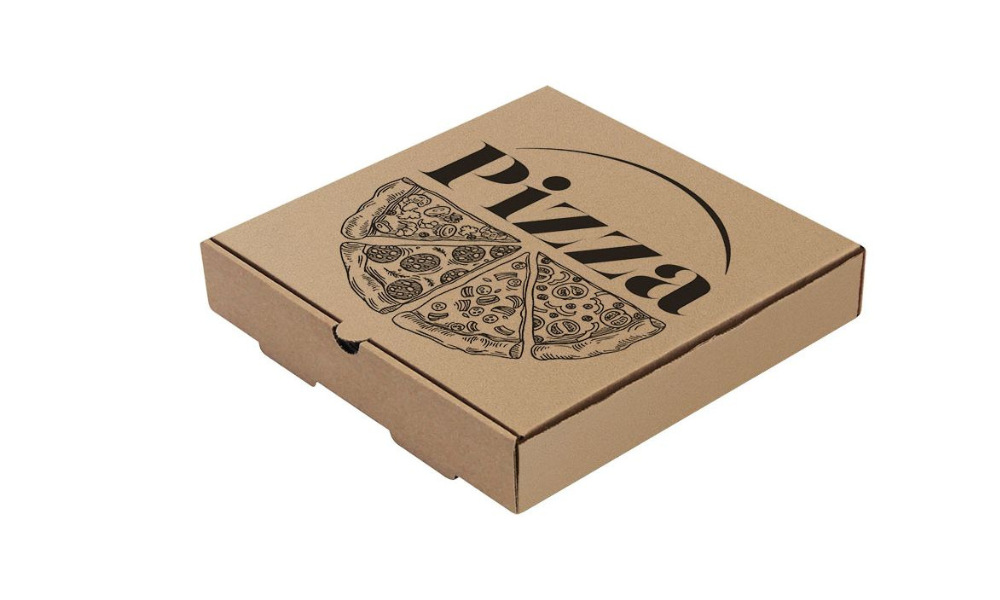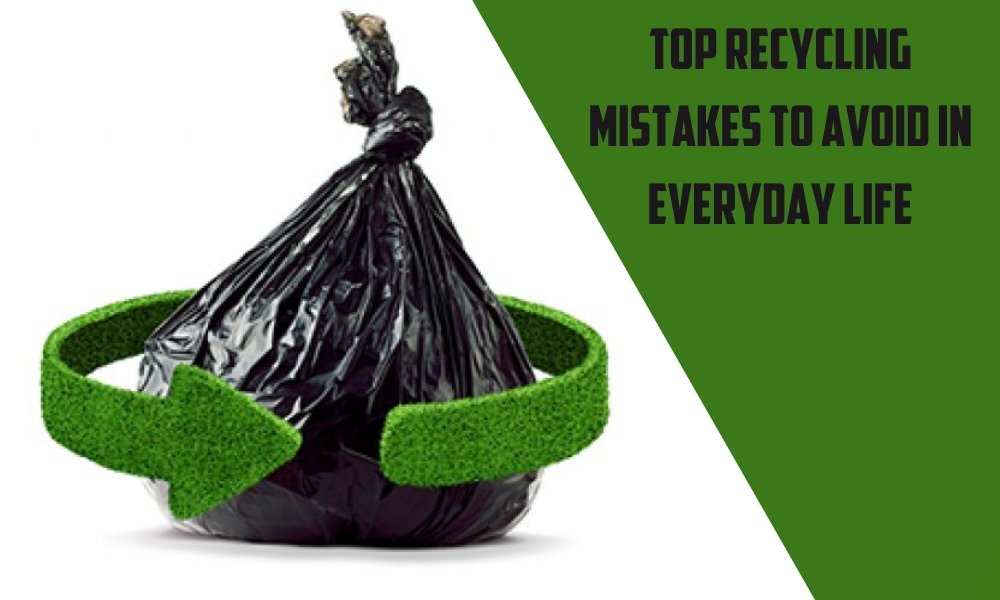Estimated reading time: 4 minutes
Recycling seems simple—just toss the right items into the proper container, and they’ll be turned into something new. Unfortunately, it’s not that straightforward. Many people (including me at one point) unknowingly make errors that result in materials being discarded instead of repurposed.
Let’s go over some of the biggest mistakes people make so you can avoid wasting time and resources.
What You’ll Learn
- Why some items don’t get repurposed—even when placed in the correct container
- The most common mistakes people make with plastics, paper, and glass
- How to handle tricky disposables like pizza boxes and electronics
- Simple ways to improve your household waste management
1. Stop Bagging Recyclables
Tying up cans, bottles, and other items in a plastic sack might seem tidy, but it causes major issues at processing centers. Machines struggle to sort through bagged materials, often leading to entire loads being discarded.
A Better Approach
Place items directly in the bin without a covering. If you need a way to collect them before disposal, use a cardboard box or reusable container instead.
2. Dirty Containers? They Won’t Get Reused

Ever tossed a half-full yogurt cup in the blue bin? Bad news—that entire load may have ended up in a landfill. Food and liquid residues contaminate entire batches, rendering them useless.
A Simple Fix
Give jars, bottles, and cans a quick rinse before disposal. No need for a deep clean—just remove excess food and liquid.
3. Assuming All Plastics Are Recyclable
Not all plastics are created equal. The numbers inside the small triangle on containers? They determine whether an item can be processed. Only materials labeled 1, 2, or 5 are widely accepted.
What You Can Do
If a plastic item lacks a number or has a 3, 4, 6, or 7, it likely belongs in the trash or a specialized drop-off program.
Want more details? Check out Why Recycling Matters.
4. Pizza Boxes: A Yes and No Situation

While cardboard is usually reusable, grease-covered boxes aren’t. Oil contaminates the fibers, making them unsuitable for processing.
Best Option
- Clean sections can be reused.
- Oily portions should be composted or discarded.
5. Glass: Separate or Mixed?
Some cities now require glass to be sorted separately because it breaks and contaminates other materials.
Know Your Local Rules
Check whether your area has a designated container for glass items. If not, ensure bottles and jars are free of lids before disposal.
6. Wishcycling: Hope Won’t Make It Work
Ever placed something in the bin hoping it would get repurposed? That’s called wishcycling, and it causes more harm than good. Contaminated loads often get rejected, sending perfectly good materials to waste.
A Smarter Approach
If unsure whether something belongs, look it up. Many city websites provide detailed guidelines.
7. Disposing of Electronics Incorrectly
Old phones, laptops, and chargers don’t belong in curbside collection bins. They contain hazardous materials and require specialized handling.
Proper Disposal
Many retailers and municipal programs offer drop-off services for e-waste. Looking for more info? Read What Happens to Your Junk?.
8. Single-Use Plastics Are a No-Go
Takeout forks, straws, and disposable cups often seem like they should be reusable, but they aren’t. These low-grade plastics aren’t processed in most facilities.
A Smarter Solution
Limit use when possible and opt for reusable alternatives. If you must use them, they belong in regular waste.
9. Shredded Paper Creates Sorting Problems
Paper itself is highly recyclable—but tiny shreds? Not so much. Small pieces are difficult to process and often get lost in transport.
What to Do Instead
- If allowed, place shredded paper inside a paper bag before disposal.
- Otherwise, compost it.
10. Not Checking Local Guidelines
Recycling programs vary widely. Some cities accept aerosol cans, while others don’t. Certain plastics might be accepted in one area but rejected in another.
How to Stay Informed
Check your local regulations—especially if you’ve recently moved. Need to declutter first? Here are some simple decluttering tips.
Simple Ways to Improve Your Recycling Habits
Want to make sure your efforts actually count? Follow these steps:
Rinse food and drink containers before disposal
Sort properly based on local guidelines
Never bag items before placing them in the bin
Check plastic numbers before tossing them in
Dispose of tricky items correctly (electronics, pizza boxes, and single-use plastics)
Even minor adjustments can lead to huge improvements in reducing waste.
Final Thoughts
Getting recycling right is about more than just tossing things in a bin—it’s about making sure materials get a second life. Avoiding these common mistakes ensures that your efforts truly make a difference.Looking for ways to responsibly clear out unwanted items? Here’s how to find the best junk removal service.



